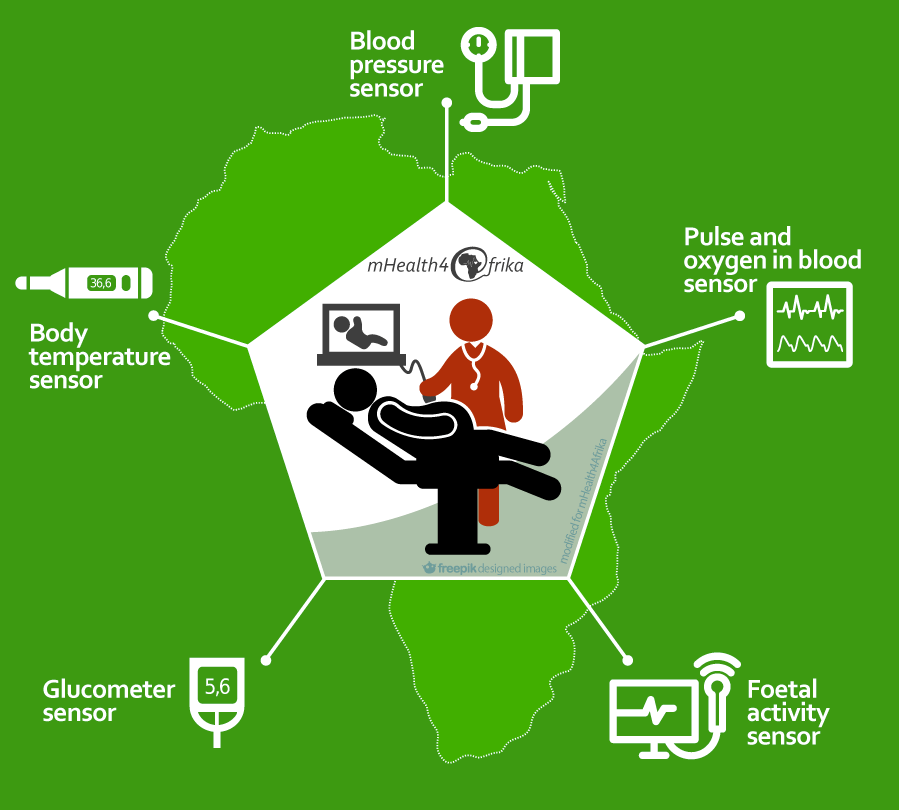Overview
Child mortality and maternal health are long-standing challenges in Developing Country contexts. WHO reports that “6.3 million children under the age of five died in 2013” and “99% of all maternal deaths occur in developing countries … and the maternal mortality ratio in developing countries in 2013 is [an average of] 230 per 100,000 live births versus 16 per 100,000 live births in developed countries”. This explains why two of the eight Millennium Development Goals (MDG 5 – Improve Maternal Health, MDG 4 – Reduce Child Mortality) were focused on these areas and why Maternal Healthcare remains a priority area in Post-2015 Sustainable Development Goals.
Duration
mHealth4Afrika is a three-year collaborative Research and Innovation project co-funded by the European Commission under Horizon 2020 (Grant Agreement No: 688015). It addresses maternal and newborn healthcare delivery, a key requirement of end-user communities in developing countries, and a priority area in the Post-2015 Sustainable Development Goals. Aligned with Horizon 2020 Societal Challenges, mHealth4Afrika will research and evaluate the potential impact of co-designing an open-source, multilingual mHealth platform on the quality of community-based maternal and Newborn healthcare delivery in Southern Africa (Malawi, South Africa), East Africa (Kenya) and Horn of Africa (Ethiopia). 0 live births in developed countries”. This explains why two of the eight Millennium Development Goals (MDG 5 – Improve Maternal Health, MDG 4-Reduce Child Mortality) were focused on these areas and why Maternal Healthcare remains a priority area in Post-2015 Sustainable Development Goals.
Research and Innovation
Research and innovation actors from three European and four African countries will collaborate with local communities, health ministries, professionals, volunteers, and NGOs through the mHealth4Afrika project. This initiative employs a user-centered design, Living Labs, and an open innovation approach to address the growing healthcare crisis in developing countries. A 2013 WHO report highlighted Africa’s deficit of 1.8 million skilled health workers, which could rise to 4.3 million by 2035. Most skilled health workers are concentrated in major cities, underscoring the need for technology to enhance healthcare access in rural and underserved urban areas. Despite this need, Africa has reported the fewest mHealth initiatives.
Outcome
- mHealth4Afrika will research and implement the integration and adaptation.
- Multilingual electronic health records to store patient history, associated tests, and test results.
- sensors to capture the results of a range of standardized tests for expectant mothers, unborn babies, infants and lactating mothers.
- analytical and visualization tools to facilitate the interpretation and monitoring of the patient results.
- multi-lingual and multi-modal interface leveraging visualization and speech synthesis to address literacy deficits and digitizing data gathering through electronic forms into a framework supporting quality maternal and newborn healthcare delivery in clinics across Africa.

Collaborators






